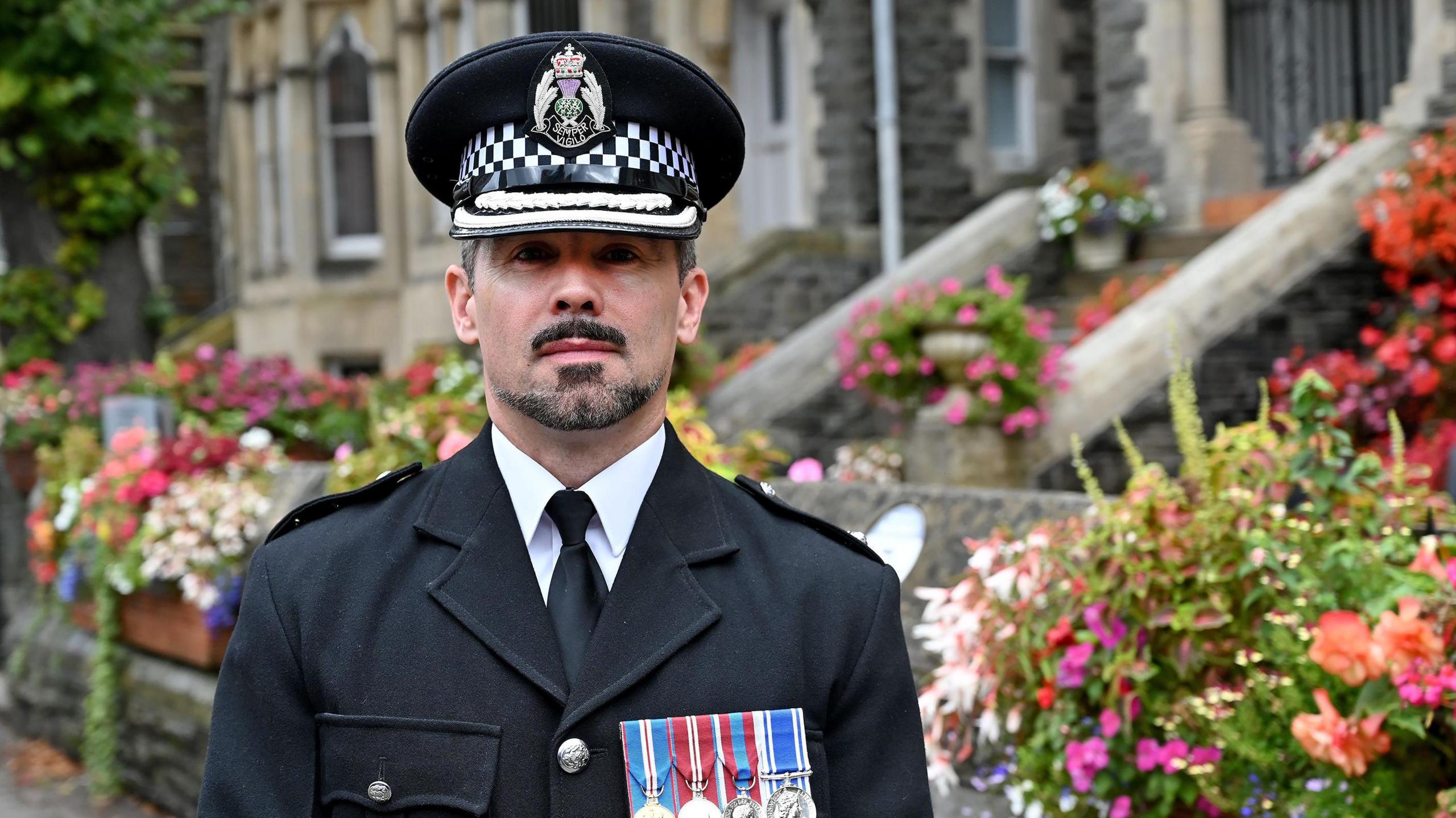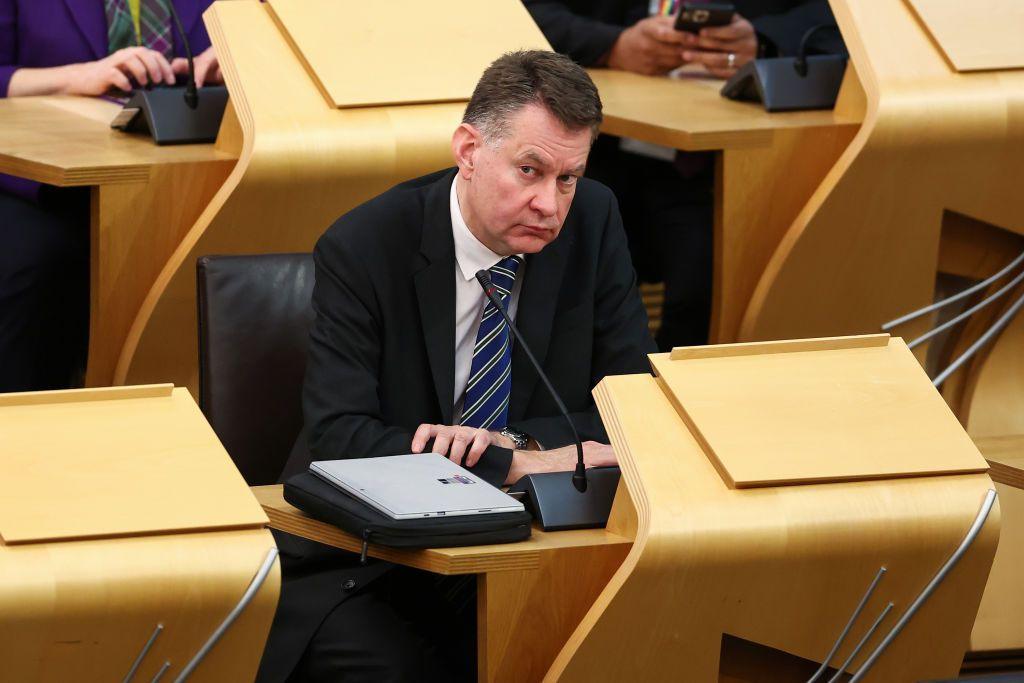Hate crime law could damage trust in police - chief

Ch Supt Rob Hay says there is a number of ways the new law could damage trust in police
- Published
A senior police officer has said new Scottish hate crime laws which take effect on Monday could risk damaging public trust in the force.
Ch Supt Rob Hay, from the Association of Scottish Police Superintendents (ASPS), said people could feel "aggrieved" if they are reported under the legislation and have their details recorded, even if they have not committed a crime.
He also told the BBC the force has not been given any additional resources to cope.
The Scottish government said there are protections for free speech in the law and there had been a "robust package" of training and guidance for police officers.
FM rejects claims of hate crime law 'shambles'
- Published21 March 2024
Hate crimes: police will not 'target performers'
- Published19 March 2024
Hate crime law: Force for good or recipe for disaster?
- Published14 March 2024
The Hate and Public Order (Scotland) Act, external - which comes into force on 1 April - criminalises threatening or abusive behaviour which is intended to stir up hatred based on certain characteristics including age, disability, sexual orientation and transgender identity.
A similar offence which covers stirring up hatred based on race had been on the statute book since 1986.
Police Scotland said they will only respond to complaints and not go looking for offending material.
The force has also pledged to investigate every complaint they receive.
Ch Supt Hay told the BBC's Sunday Show that when the criminal threshold for the legislation is not met the force would still record details.
Scottish Tory MSP Murdo Fraser recently threatened the force with legal action for doing this, as officers logged a social media comment he made as a "hate incident".
Mr Fraser had likened identifying as non-binary to identifying "as a cat" in relation to Scottish government equality policies last November. Police decided there was no criminality.

Murdo Fraser has threatened Police Scotland with legal action
Ch Supt Hay said: "We might find ourselves in the position where a member of the public feels quite aggrieved for having their details recorded and kept for behaviour that doesn’t meet that criminal threshold.
"So there are two ways potentially that we could damage trust and confidence in the police - around whether the police response meets with expectations, and whether have the police exceeded themselves in involving themselves in non-criminal matters."
Recently Police Scotland criticised "inaccurate" reports that officers would target performers including comedians under the Hate Crime Act.
It came after details of a two-hour online course to train officers in the new law were leaked to the press. This included a slide that said "threatening or abusive material" could be communicated "through public performance of a play".
Ch Supt Hay said his primary concern was around resourcing as well as making sure members of the public are clear about the parameters of the law.
He also said the idea that police would target performers "couldn't be further from the truth".
"Not only do the police not have the resource to do something like that, but that is not how we operate around this sort of offense," he said.
"We are driven by public reporting and we respond to that public reporting as a result of it.
"So expectations in some quarters are likely to be very high around about the level of police intervention but whether or not we will be able to achieve what people are looking for us to achieve in respect of this will only be found at the conclusion of any investigation."
'Common sense'
Police Scotland's chief constable Jo Farrell gave an update to the Scottish Police Authority board, saying the act was "no different" to the way officers balance human rights with individual laws every day.
She said: “Part of our response as the legislation beds in is to keep obviously close scrutiny in relation to the volume, in relation to type of crime that’s being reported, what are the implications, a quality assurance to our response so that we are applying the legislation appropriately.
“Police Scotland is used to enforcing new legislation, supporting our officers, providing them with the training and operational guidance they need to apply the law in a measured way using their discretion and common sense.
A spokesperson for the Scottish government said the laws have a high threshold for proving offences of stirring up hatred.
They added: "We have worked with partners, including Police Scotland, to ensure effective implementation of the legislation and the timetable for commencement has allowed for the delivery of a robust package of training and guidance for police officers.
"Training of police officers is an operational matter to Police Scotland, with whom we will continue to work closely."